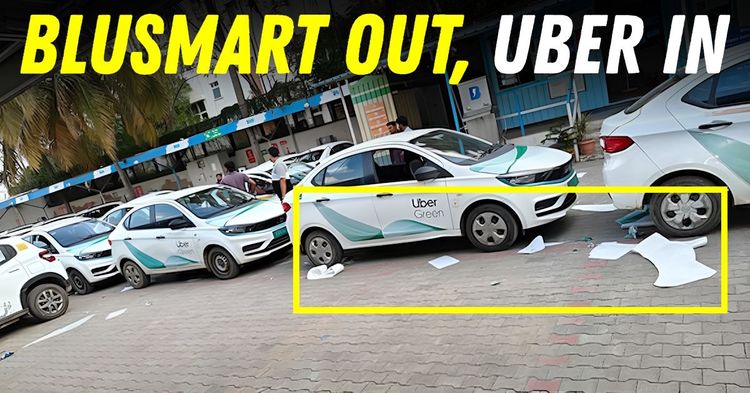BluSmart To Customers: Do NOT Expect Any Refund, Here's Why


It is not every day that a verified brand account tells customers not to expect refunds. Yet, on 10 October, that is exactly what BluSmart’s official handle on X (formerly Twitter) appeared to do.
The post claimed that the company had been shut since February 2025, accused its founders of fraud, said employees had not been paid for four months, and warned users not to message the company for help.
Within hours, screenshots flooded social media, and confusion spread rapidly. Was the post genuine, or had the account been compromised? For thousands of users who still had money sitting in their BluSmart wallets, the bigger question was how to get it back.
As the news went viral, more people began digging for answers. Some argued that the tone of the post seemed out of character for an official statement, while others saw it as a blunt confirmation of what customers had already sensed, that BluSmart’s electric cab operations had come to a halt months ago. Either way, the message triggered old frustrations that had been simmering since April, when users first reported being unable to book rides or receive refunds.

The seeds of this controversy go back to mid-April 2025. That was when BluSmart’s operations began collapsing after SEBI accused Gensol, a company linked to one of BluSmart’s co-founders, of diverting funds. Airport counters were shut down, bookings through the app started failing, and users were left chasing refunds for cancelled rides.
There was no easy way to get their money back. The app did not have an automated refund option, and users had to rely on makeshift guides circulating online to raise tickets manually.

For a company that had once branded itself as a clean, reliable alternative to traditional cabs, this breakdown of trust was painful. BluSmart had built its reputation around electric cabs that were punctual, transparent, and better for the environment. Suddenly, those promises were replaced by silence, confusion, and growing anger.
The 10 October post, if genuine, went beyond customer grievances. It hinted at internal turmoil: months of unpaid salaries, halted operations, and a lack of clarity from the top. Employees reportedly began speaking up again, sharing that they too were struggling to get dues cleared.

For customers, the sums locked in app wallets might be small individually but significant in total. Recovering them, however, is complex. Legal recourse can take months, especially when there is no official insolvency process or public closure notice.
Some users have already turned to community forums for guidance on consumer court complaints and demand notices. But in practical terms, with creditors and employees also owed money, customers are likely to find themselves last in line for any settlement.
BluSmart had tried to solve the reliability issues that often plague app-based cabs by owning much of its fleet and controlling its charging network. But that same approach made it more vulnerable when funding was disrupted.

The alleged fund diversion case involving its promoter group dealt a direct blow to the very foundation that kept the service running. By April, most users had already noticed that the app no longer worked. The post on X merely confirmed the fears many had pushed aside.

It remains unclear whether the now-viral post represents BluSmart’s final word or a rogue message from a frustrated insider. There has been no official retraction or clarification so far. No new refund mechanism has been announced either. For users, the episode serves as a stark reminder about the risks of storing money in digital wallets tied to private companies.
Keeping large balances in such apps effectively means lending money to a business without guarantees. Once operations stop, recovering those funds can become an uphill battle. BluSmart’s collapse, whether temporary or permanent, highlights how fragile trust can be in the ride-hailing space, especially when technology, regulation, and funding all need to move in sync.